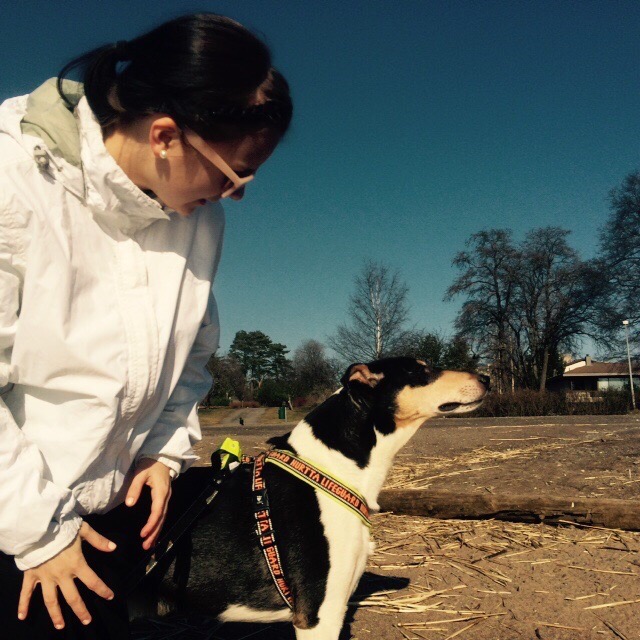Administrators of this blog
kuva
Marjaana Raukola-Lindblom
esittelyteksti
kuva
Ida Luotonen
esittelyteksti
Master’s theses in Speech-Language Pathology in University of Turku

Maria Hurmerinta
Master’s thesis: Social and health care professionals’ views on the effects of dog-assisted work on patient’s communicative functions and cognition
Spring 2024
My research was based on the data of a survey aimed at social and health care professionals working with dogs. The purpose of my research was to find out the views of professionals on the effects of dog-assisted work on patient’s communicative functions and cognition. In addition, I examined whether the amount of work experience of the professionals or the experience of dog-assisted work has a connection with professionals’ views on the effects of dog-assisted work.
The vast majority of the professionals who responded to the survey felt that dog-assisted work had a positive effect on the patient’s communicative functions and cognition. Of the abilities related to communicative functions, dog-assisted work was experienced to have the greatest impact on the ability to participate in conversation and behave appropriately in social situations. In terms of cognition, the most positive effects were observed in terms of the ability to empathize and the ability to recognize other people’s emotional states. Longer work experience and dog-assisted working experience were found to be connected to more positive perceptions regarding auditory comprehension and turn-taking abilities. In addition to these, work experience was connected to more positive perceptions of the ability to understand cause-and-effect relationships and recognize other people’s emotional states. The results of the study are an indicative overview of how useful dog-assisted work is perceived among Finnish social and health professionals in terms of clients’ communicative functions and cognition.

Essi Ylönen
Master’s thesis: Dog’s skills and the goals of dog’s action in dog-assisted work in social and health care
Spring 2024
In my research, I investigated the thoughts of social and health care professionals doing goal-oriented dog-assisted work about dog’s skills and the goals of dog’s action. The research was carried out as a survey and the data was analyzed both qualitatively and statistically. The results showed that the respondents thought that the goals of dog’s action are especially to relieve the patient’s stress, tension and anxiety, increase motivation and support social interaction. The more work experience respondents had, the more they thought that the goals of dog’s action included the strengthening of psychological flexibility, i.e. resilience, and the regulation of emotions and behavior. The amount of dog-assisted work experience had no effect on the views of the goals of dog’s action. The respondents experienced that the required skills of the dog were the dogs’ desire to be present, interest in humans and the ability to calm down. The results conform to previous research results and indicate what kind of task and importance dogs have in social and health care, as well as what kind of dog’s skills are perceived to be important.
